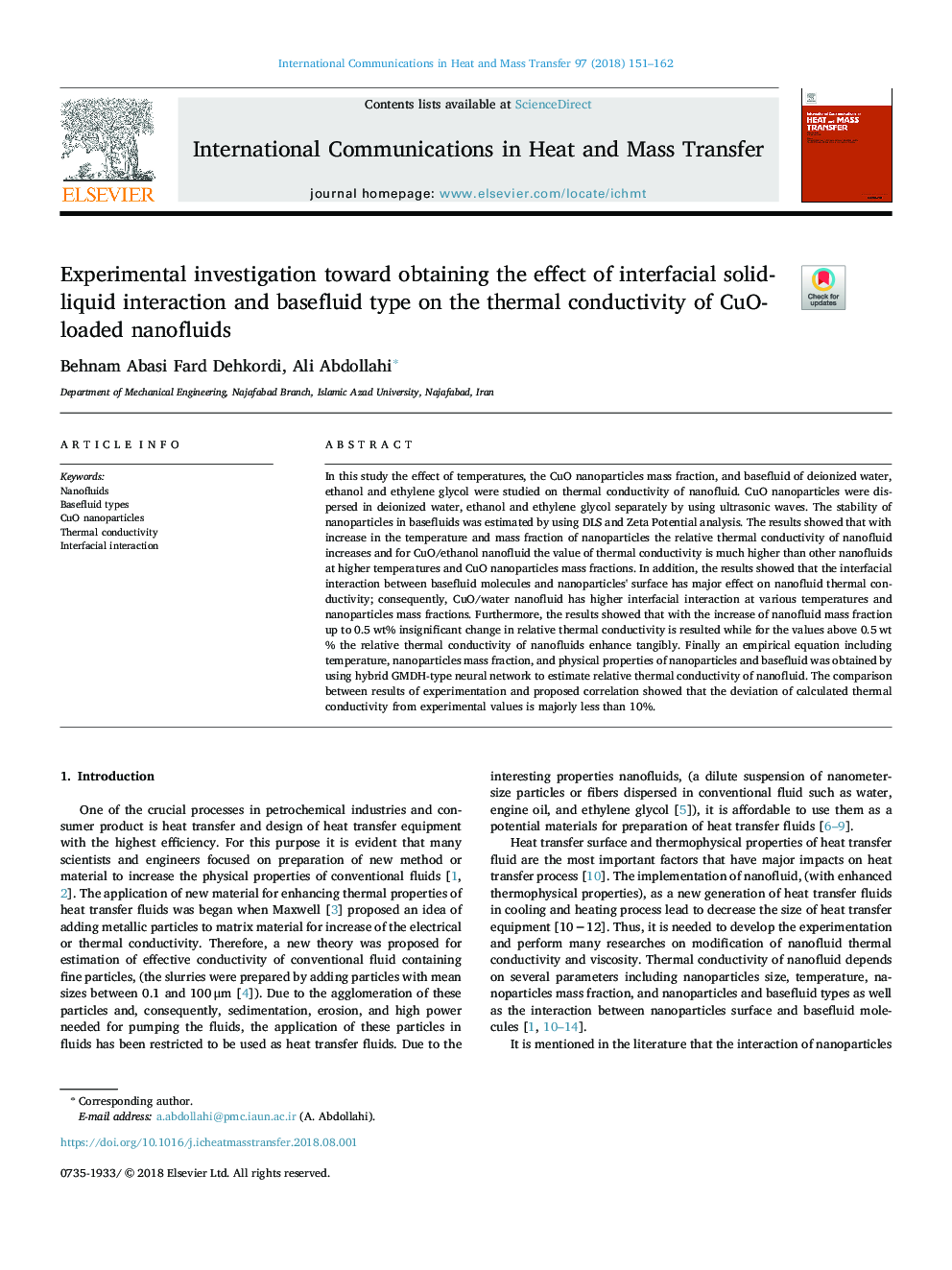| کد مقاله | کد نشریه | سال انتشار | مقاله انگلیسی | نسخه تمام متن |
|---|---|---|---|---|
| 7052747 | 1457457 | 2018 | 12 صفحه PDF | دانلود رایگان |
عنوان انگلیسی مقاله ISI
Experimental investigation toward obtaining the effect of interfacial solid-liquid interaction and basefluid type on the thermal conductivity of CuO-loaded nanofluids
دانلود مقاله + سفارش ترجمه
دانلود مقاله ISI انگلیسی
رایگان برای ایرانیان
کلمات کلیدی
موضوعات مرتبط
مهندسی و علوم پایه
مهندسی شیمی
جریان سیال و فرایندهای انتقال
پیش نمایش صفحه اول مقاله

چکیده انگلیسی
In this study the effect of temperatures, the CuO nanoparticles mass fraction, and basefluid of deionized water, ethanol and ethylene glycol were studied on thermal conductivity of nanofluid. CuO nanoparticles were dispersed in deionized water, ethanol and ethylene glycol separately by using ultrasonic waves. The stability of nanoparticles in basefluids was estimated by using DLS and Zeta Potential analysis. The results showed that with increase in the temperature and mass fraction of nanoparticles the relative thermal conductivity of nanofluid increases and for CuO/ethanol nanofluid the value of thermal conductivity is much higher than other nanofluids at higher temperatures and CuO nanoparticles mass fractions. In addition, the results showed that the interfacial interaction between basefluid molecules and nanoparticles' surface has major effect on nanofluid thermal conductivity; consequently, CuO/water nanofluid has higher interfacial interaction at various temperatures and nanoparticles mass fractions. Furthermore, the results showed that with the increase of nanofluid mass fraction up to 0.5â¯wt% insignificant change in relative thermal conductivity is resulted while for the values above 0.5â¯wt% the relative thermal conductivity of nanofluids enhance tangibly. Finally an empirical equation including temperature, nanoparticles mass fraction, and physical properties of nanoparticles and basefluid was obtained by using hybrid GMDH-type neural network to estimate relative thermal conductivity of nanofluid. The comparison between results of experimentation and proposed correlation showed that the deviation of calculated thermal conductivity from experimental values is majorly less than 10%.
ناشر
Database: Elsevier - ScienceDirect (ساینس دایرکت)
Journal: International Communications in Heat and Mass Transfer - Volume 97, October 2018, Pages 151-162
Journal: International Communications in Heat and Mass Transfer - Volume 97, October 2018, Pages 151-162
نویسندگان
Behnam Abasi Fard Dehkordi, Ali Abdollahi,